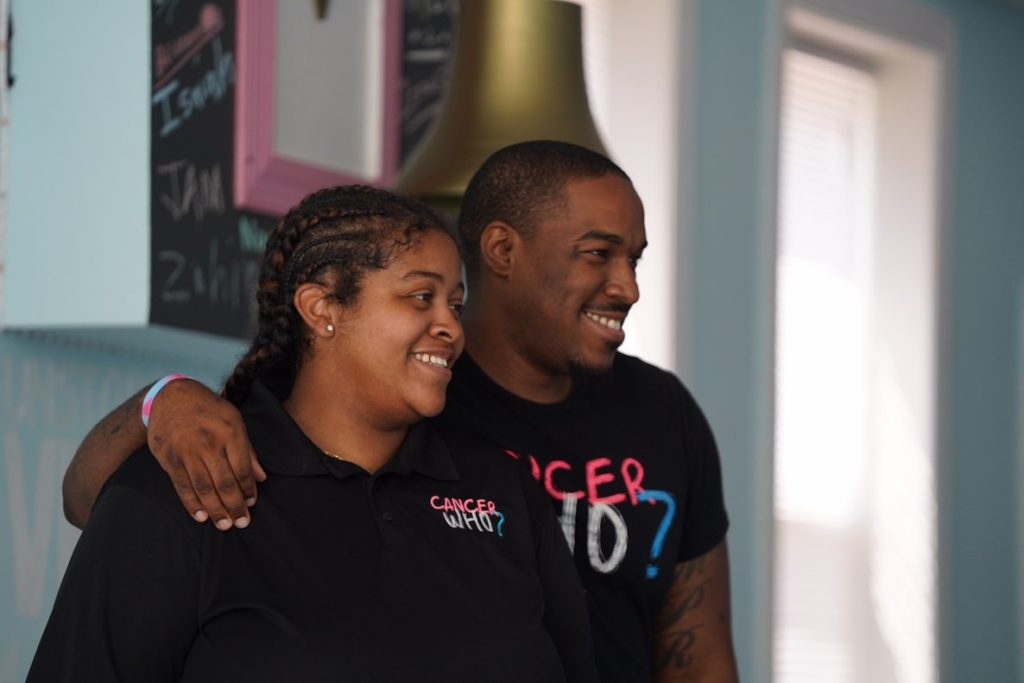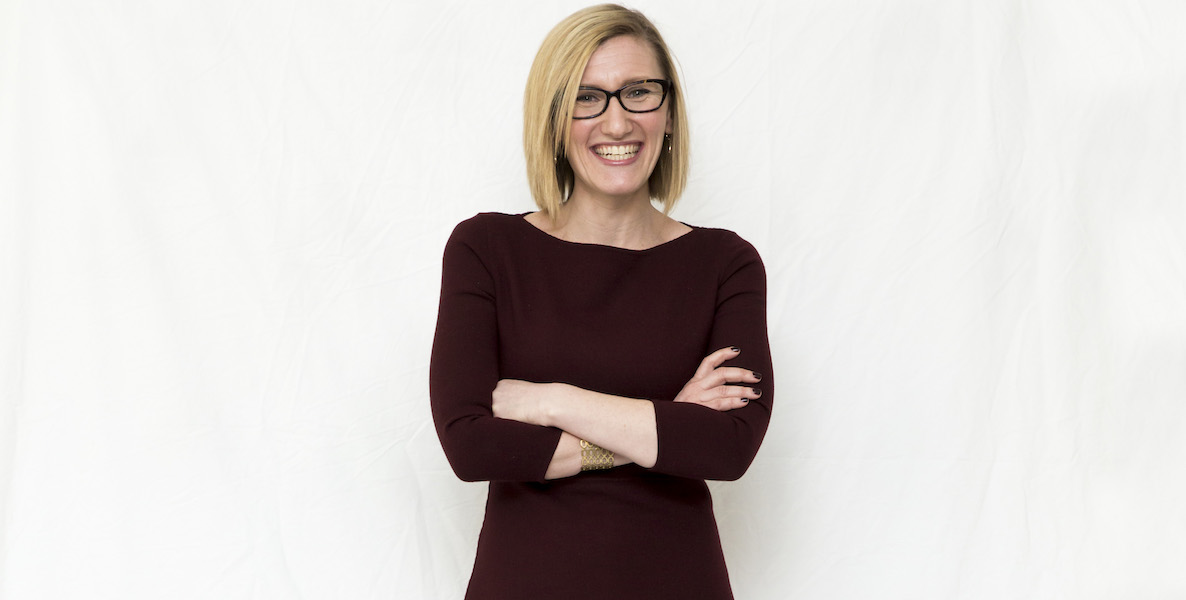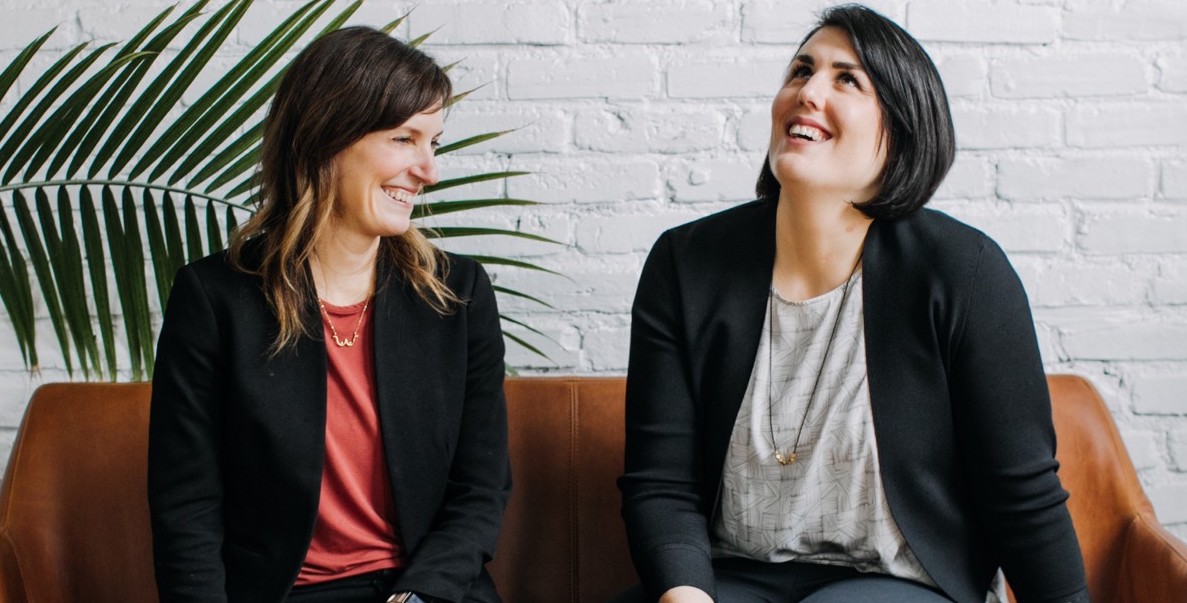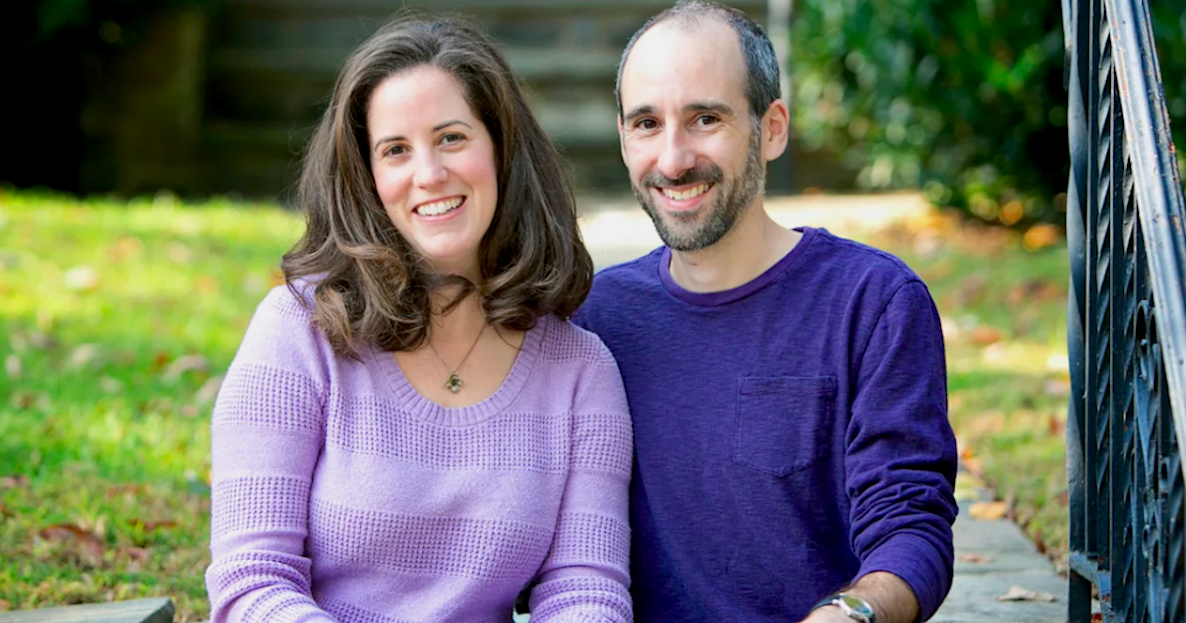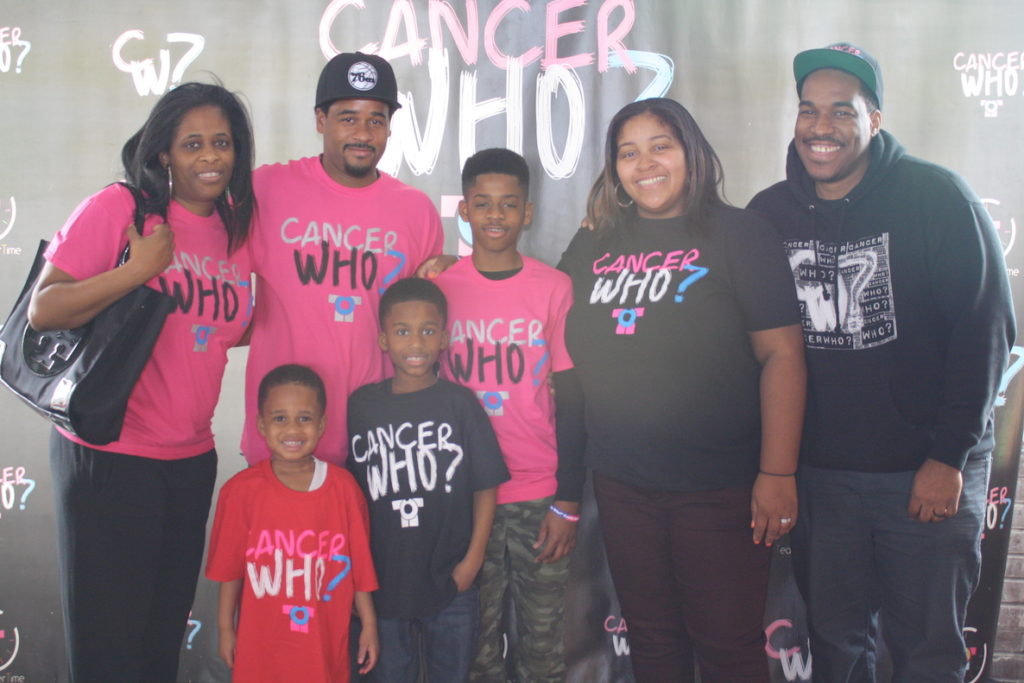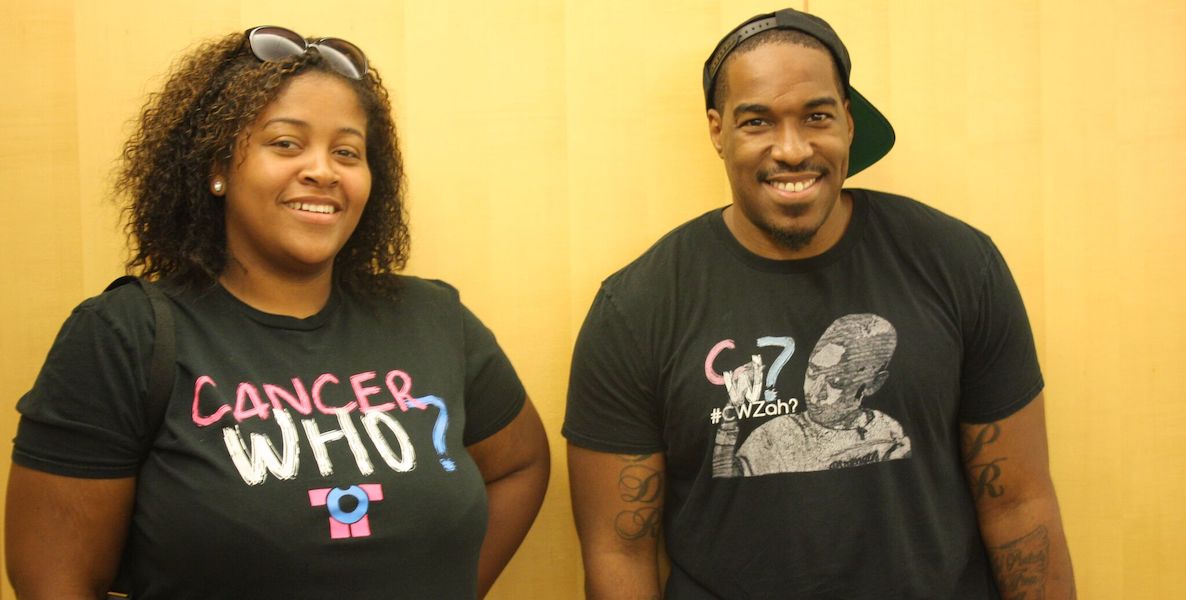He’s come to ring the bell.
It’s a blistering weekday afternoon, and an older man enters the sunny storefront at 3400 Richmond Street. He’s trailed by his grown daughters, one of whom has driven up from Maryland for the momentous occasion: Their proud father—looking strong in his aviator sunglasses, red Sixers tee, jeans and snow-white sneakers—has finished the last of his radiation treatments.
Donate to Cancer WHO?Do Something
It’s just one more sweet moment at the Port Richmond headquarters of Cancer WHO?, a cancer-support nonprofit founded in 2013 by husband-and-wife duo Al and Marjani Harris. The organization provides a range of free services, including companionship during cancer treatments, support groups for family members, homework help for kids, rides to appointments and social get-togethers.
“That’s a phenomenal experience. It’s not something we get used to,” says Al, of the gentleman stopping by to ring the bell. “Every time somebody comes through our doors, it feels unique.”
The idea for the organization came to the Philly natives a decade ago, when their own families were touched by cancer—Marjani’s stepfather, Bruce and two of Al’s cousins were diagnosed, one right after the other. Al began spending extra time with Bruce, accompanying him on runs along Kelly Drive.
“Undergoing cancer treatment is a shock to a family,” says Robin Capecci, an oncology social worker at St. Christopher’s. “Cancer WHO? makes families feel that they’re not alone.”
“We were building a bond. And it was relaxing to him to have someone to do those things with,” says Al.
When Bruce died in 2009, Al wanted to offer dependable companionship to others battling cancer. But when he looked for an organization that might pair him with patients, he didn’t find one that felt like the right fit.
“This is something that’s so easy and doesn’t take money to do, so why hasn’t anybody created anything like this?” he wondered. So in 2013, they began a grassroots organization they called Team Overtime, given that it was what they did when they weren’t working—he as an aide to people with intellectual disabilities, she in sales for PNC Bank. And Al took the first step.
“I walked into a hospital one day and just started sitting and talking with people who were undergoing treatments,” Al says. One person would tell another about “this guy who will keep you company,” and before long, Al was spending up to six days a week at regional hospitals like St. Christopher’s, Fox Chase, Virtua and Temple.
About other incredible citizens in PhillyRead More
Along the way, they created a network of 200 like-minded volunteers to provide simple aid and comfort to cancer patients and their families. The volunteers, called “ambassadors,” are vetted with criminal background checks and child-abuse clearances before being paired with interested families by social workers at one of the group’s partner hospitals, like St. Christopher’s and CHOP. Ambassadors agree to a 10-hour-a-month commitment, including one chemo session and one outing, as well as phone calls and texting—though nearly all ambassadors exceed the minimum requirements.
One ambassador, a cancer patient herself, even threw her Cancer WHO? family member a birthday party; another takes his person to Sixers games. “They’re bonded forever, like family,” says Al.
Robin Capecci, an oncology social worker at St. Christopher’s who works with Cancer WHO?, calls the organization “a gift.”
“We see [Cancer WHO?] as an extended arm of us,” she says. “Undergoing cancer treatment is a shock to a family. Cancer WHO? makes families feel that they’re not alone.”
Since its founding, Cancer WHO? has helped more than 250 families directly and touched the lives of thousands more. Al, who takes no salary, works full time for the organization, while Marjani juggles her volunteering with her full-time role at PNC. The couple say they fund Cancer WHO? through their own savings as well as fund-raising events, online crowdfunding and individual donations. They also offset overhead costs by renting out the space for weekend events.
“It’s about the relationships we create,” Al says. “They are real, genuine relationships. We’re a Cancer WHO? family.”
It has been quite an undertaking for the Harrises, who have had three children—now ages 7, 2 and nine months—since founding Cancer WHO? “It’s just our way,” Al says with a shrug.
Last February, they achieved their biggest dream yet when they opened their dedicated center, where cancer patients and their families come for comfort and camaraderie—and to ring that bell—without feeling as if they were in a hospital.
“I wanted it to feel like home,” says Al of the airy storefront, whose walls are baby blue. One side features the Cancer WHO? logo surrounded by empowering words—grateful, thriving, conqueror. The other features art from people whose lives the organization has touched, like a stunning photo of a pregnant breast cancer survivor whom Al and Marjani supported.
The space is multipurpose, hosting support groups and yoga sessions led by volunteers and offers assistance to children coping with cancer—like homework help, mentorship and field trips. Called the Dr. Delores King Educational Program, the initiative is named for Marjani’s grandmother, a beloved, 38-year high school principal in Delaware County who never missed a day of work. She died last December of an aggressive brain cancer.
“She would be proud of what we’re doing with her name and that program,” Marjani says.
Support a cancer patientDo Even More
As the music blared, the man happily grabbed the rope of the bell and swung it from side to side. Afterward, the family stayed to chat, the women sitting with Marjani, their dad engaged in conversation with Al, as if they’ve known each other for years, not minutes.
“We’re able to be an extended family for others going through cancer,” Marjani says.
“It’s about the relationships we create,” Al says. “They are real, genuine relationships. We’re a Cancer WHO? family.”
A version of this story also ran in The Inquirer’s The Upside.


